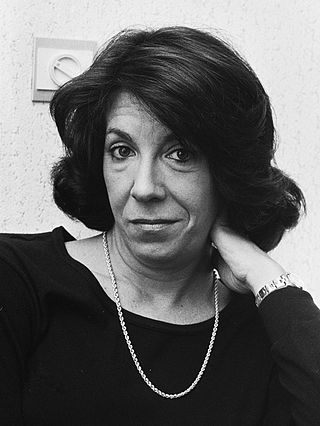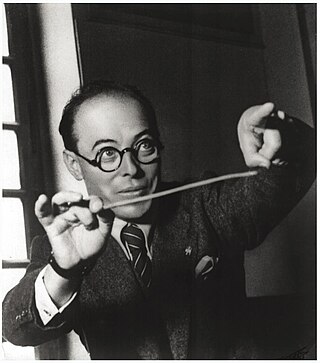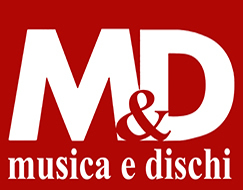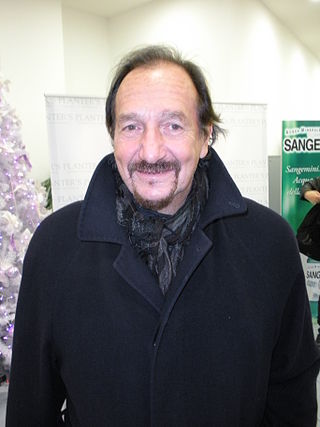
Carol Plantamura is an American soprano specializing in 17th and 20th century music.

Giuseppe "Pippo" Barzizza was an Italian composer, arranger, conductor and music director.
Italian jazz refers to jazz music that is played by Italian musicians, or to jazz music that is in some way connected to Italy.

Le maschere is an opera in a prologue and three acts by Pietro Mascagni to an Italian libretto by Luigi Illica.

Le astuzie femminili is a dramma giocoso in four acts by Domenico Cimarosa with an Italian libretto by Giuseppe Palomba. The opera buffa premiered at the Teatro dei Fiorentini in Naples, Italy, on 26 August 1794. The opera was subsequently performed in Barcelona in 1795, Lisbon in 1797, Vienna in 1799, Paris in 1802, and London in 1804, remaining popular during the first quarter of the nineteenth century. Although not performed often today, the opera is still occasionally revived and a number of recordings have been made.

The Boccherini Quintet was a string quintet founded in Rome in 1949 when two of its original members, Arturo Bonucci (cello) and Pina Carmirelli (violin), discovered and bought, in Paris, a complete collection of the first edition of Luigi Boccherini's 141 string quintets, and set about to promote this long neglected music. Since then, they performed all over Italy and Europe and in many parts of the world, including thirteen tours of North America.

Beniamino "Mino" Reitano was an Italian singer, songwriter and actor.

EMI Italiana was a record label, an Italian offshoot of British Electric and Musical Industries, based in Milan. It was founded in 1931 as VCM and, in 1967, renamed EMI Italiana; it then became EMI Music Italy in 1997 and, finally, EMI Records Italy Srl in 2013, when it ceased to exist as an independent company and was acquired by Universal Music Group.

Dischi Ricordi was an Italian record company founded on October 1, 1959 by Nanni Ricordi and Franco Crepax, active from 1958 to 1994.

Luca Barbarossa is an Italian singer-songwriter who has released 12 albums since 1981, and is known for his participation in the 1988 Eurovision Song Contest.

Musica e dischi was the oldest and longest-running music industry publication in Italy.
Fonit Cetra was an Italian record label, active between 1957 and 2000.

Aldo Bertocci was an Italian operatic tenor who sang both comprimario and leading roles in a career spanning the late 1940s to the mid-1970s. He sang in the world premieres of nine 20th century operas, most of them in performances broadcast on the RAI, Italy's national public-service radio. His discography includes live recordings of several rarities such as Mascagni's Silvano and Leoncavallo's Zingari. Bertocci was born in Turin and from 1974 lived in Cassano Valcuvia where he died shortly before his 88th birthday.

Francesco Luigi Simone is an Italian singer-songwriter, composer and television host, known as "il poeta con la chitarra" for the poetical value of his lyrics.
Dorle Jarmel Soria was an American publicist, producer of classical music recordings, and journalist. With her husband Dario Soria, she co-founded Cetra-Soria Records and Angel Records.

Andrea Mingardi is an Italian singer-songwriter, composer, musician, author and occasional actor.
Mario Castelnuovo is an Italian singer-songwriter and composer.

Mauro Cardi is an Italian composer.
Durium was an Italian record label, active from 1935 to 1989. Part of the catalogue and the brand were subsequently taken over by Ricordi, who used it for some reissues. Its initial trademark consisted of the writing Durium in block letters, surmounted by the stylisation of three trumpets and an eagle. Immediately after the war, this logo was abandoned to move to the stylisation of a disk with three internal rays crossed by the writing Durium in italics.

Cesare Antoniolli was an Italian composer, arranger and orchestral director of popular music active during the 1900-1960 period. He composed music alongside notable lyricists, arranged music for major publishers, and directed his own orchestra backing popular singing stars on their recordings.
The orchestra was variously nominated as Orchestra Antoniolli, Orchestra da Ballo Antoniolli, Orchestra Melodica Napoletana Antoniolli and Orchestra Tropical Antoniolli. He played an important creative part in the survival and subsequent post-war rebirth, of Italy's popular music scene.















